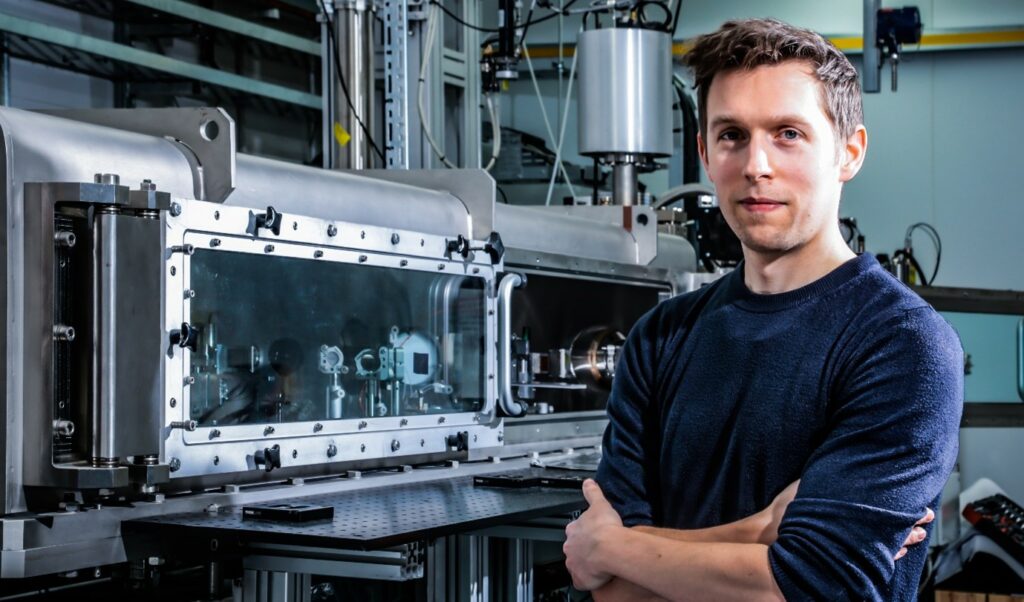STFC has awarded an Ernest Rutherford Fellowship to Cockcroft Institute researcher Dr Morgan Hibberd from the University of Manchester, the first to be given in the field of accelerator physics.
The fellowships recognise the next generation of astronomy and physics leaders and provide funding to take on some of the biggest challenges in their fields. The £6 million total investment marks the 13th consecutive year that the UK’s Science and Technology Facilities Council (STFC) have awarded the prestigious Ernest Rutherford Fellowships.
Morgan’s research will focus on hybrid novel particle accelerator technology, tackling the issue of particle bunch injection into plasma-wakefield accelerators by combining with novel terahertz (THz)-based accelerator concepts.
Plasma-wakefields can offer up to a 1,000 times higher accelerating gradient than conventional technology, providing a route to drastically shrink the size and cost of future particle accelerators. However, as these new types of compact particle accelerator operate at much higher THz frequencies, the process of injecting the initial particle bunches into the accelerating cavity becomes extremely challenging. It requires shorter bunches with precise timing synchronisation that are beyond current capability.
His work aims to address this problem by exploiting powerful laser-generated pulses of THz radiation to manipulate relativistic electron bunches on an ultrafast timescale, enabling optimal injection into novel accelerators.

His research will utilise the Compact Linear Accelerator for Research and Applications (CLARA) linear accelerator test facility at STFC Daresbury Laboratory, demonstrating THz-driven ultrashort single and multi-bunch generation schemes, before targeting injection into the proton-driven plasma-wakefields of the Advanced Wakefield Experiment (AWAKE) at CERN.
The primary objective is to unlock the full capability of compact novel accelerator technology, providing diverse opportunities for high-energy research and applications currently limited to large-scale facilities.
Morgan is one of ten promising early career academics to have received fellowships this year to establish new independent research programmes. The award will hone their leadership abilities and give them the opportunity to conduct cutting edge science.
Professor Mark Thomson, STFC Executive Chair, said: “In order to tackle the challenges facing society, it is essential that we realise the enormous potential of our talented early career researchers. These fellowships will do exactly this by supporting some of the brightest minds in physics and astronomy to turn ambitious ideas into reality. Our new Ernest Rutherford fellows are leading examples of the UK’s globally recognised scientific community and it is exciting to think what discoveries they might make in the coming years.”
